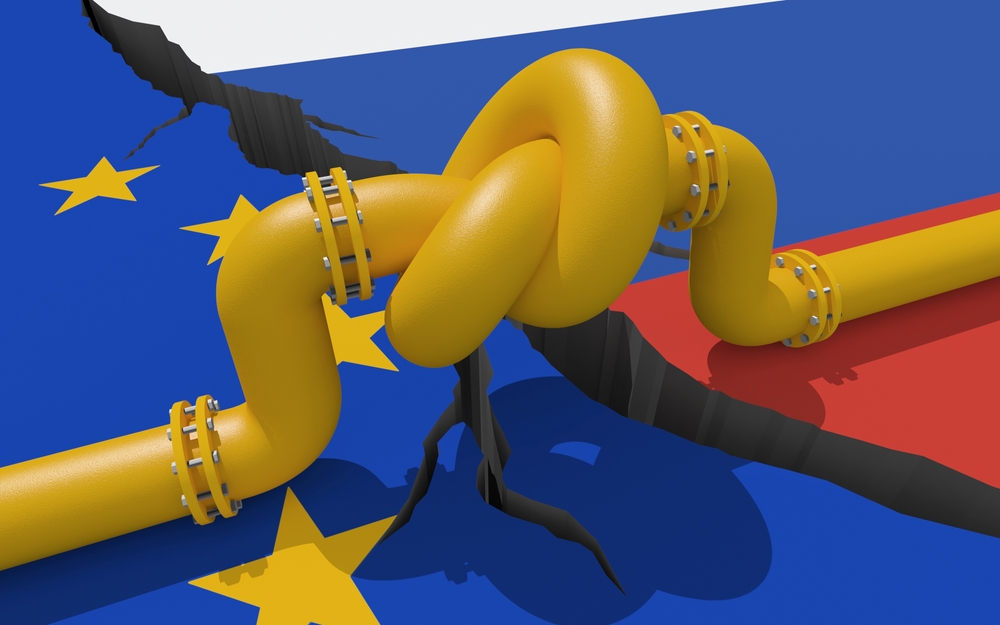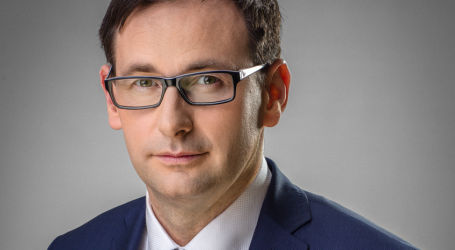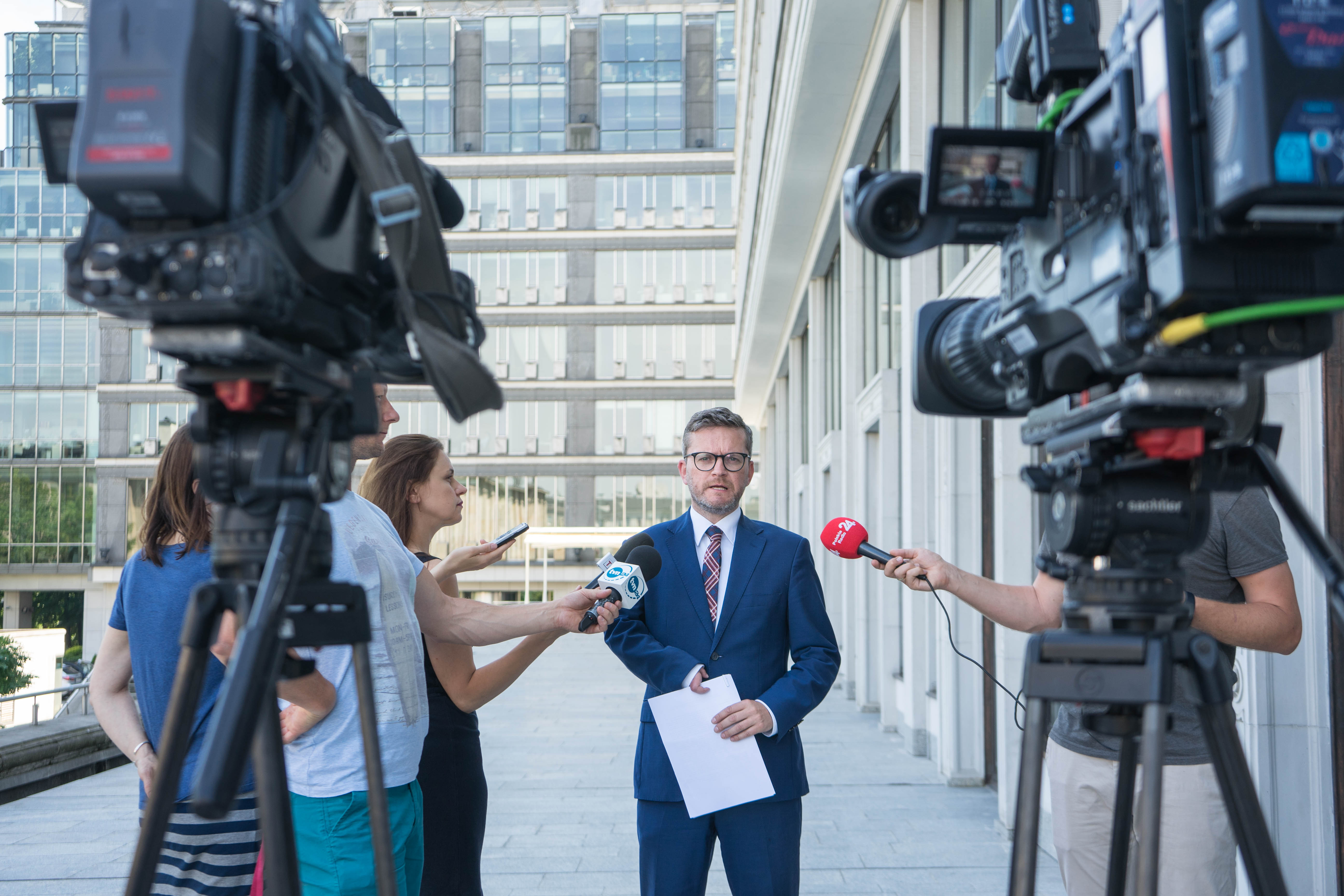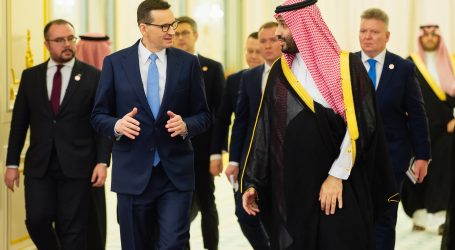EC tells EU countries how to pay for Russian gas without violating sanctions
A closed-door meeting of European Commission representatives and EU diplomats was held in Brussels on the evening of Friday, 13 May, at which the EC presented a controversial interpretation of how EU countries could pay in roubles for Russian gas without breaking EU sanctions, the Polish Press Agency (PAP) reports.
Germany and France, among others, supported the Commission’s approach. On the other hand, Poland and the Netherlands, among others, expressed their criticism.
France, which currently holds the presidency of the EU Council, unexpectedly convened a meeting of an EU diplomats’ working group on Friday evening devoted to paying in roubles for Russian gas. This came as quite a surprise to some EU capitals.
At the meeting – as PAP learned from conversations with EU diplomats – the European Commission presented instructions on how EU countries can pay in roubles for Russian raw material that does not violate EU sanctions.
The case has been controversial in Brussels for several weeks after Russian President Vladimir Putin issued a decree demanding that EU countries pay for Russian gas in Russian currency. This has sparked opposition from many EU countries, who point out that it is a breach of contracts for Russian supplies, which are settled in euros or dollars. Because of this dispute, Russia cut off supplies to Poland and Bulgaria.
Upon issuing Putin’s decree, EC chief Ursula von der Leyen was critical. She said then that paying for Russian gas in roubles violates the sanctions imposed by the EU if not stipulated in the contract. However, PAP information shows that the Commission already presented a completely different approach at the meeting on Friday, 13 May. At no point in the discussion did it say that it did not agree to pay for gas in roubles.
It also said it would instruct EU countries that setting up a euro or dollar account with Gazprombank by companies importing gas from Russia would not violate sanctions. In addition, the EC indicated that it would also not be a violation to convert money between a euro account and an EU company’s ruble account at Gazprombank. However, the EC did not answer whether opening an account in rubles by EU companies importing gas from Russia would already violate the restrictions.
The EC has also presented a proposal to declare that EU companies importing gas from Russia would submit to Gazprom, which would be a legal guarantee that they are not violating EU sanctions by paying for the raw material.
France, in turn, was to point out at the meeting that to comply with the Russian president’s decree, gas importing companies must also open a rouble account with a Russian bank. At Friday’s meeting, member states were expected to acknowledge that this was an option for buying raw material from Gazprom, in line with EU sanctions.
According to unofficial information from PAP, the German representative thanked the Commission and said that he had already consulted the EC’s stance with all German companies importing gas, although only several minutes had passed since the EC’s statement. The German companies, the Berlin representative said, were to confirm to him that the EC’s position was in their view correct. The Commission was to welcome the fact that German companies accept its proposal.
At the meeting, the Hungarian representative also emphasised that in the opinion of Hungarian companies and banks, transferring payments in euros and conversion to roubles does not violate European sanctions. Italy also supported the payment in roubles for Russian gas.
For some Member States, the stance presented unexpectedly on Friday evening by the European Commission, Germany, France, and Hungary came as a big surprise. However, there were claims in Brussels that everything showed that the scenario for this meeting had most likely been agreed in advance between the Commission, Berlin, Paris, and Budapest.
Some countries considered the Commission’s interpretation of payment in roubles for gas frivolous, given the situation in which Ukraine finds itself.
Among the critical voices was the representative of the Netherlands, who asked the Commission, among other things, whether the EU countries should agree to Gazprom independently transferring and converting money in two accounts, which are after all owned by European companies, de facto without their control.
According to PAP’s interviews with diplomats, Poland did not agree with the Commission’s stance. It backed the Netherlands, recalling that it is still not receiving gas from Russia. Gazprom has closed Poland’s accounts used to make payments under the Yamal contract, demanding that Warsaw amend the contract and open two accounts.
According to unofficial information from PAP, the Polish representative at the meeting congratulated the German representative for consulting with companies in Germany within several minutes of the EC presentation and confirming that the Commission’s interpretations of payments in roubles were acceptable to them.
– The Commission’s position is not acceptable. Putin’s decree is, after all, a counter-sanction. Moreover, the issue was so controversial that it had already reached the highest political level – one EU diplomat told PAP.
source: PortalMorski.pl




